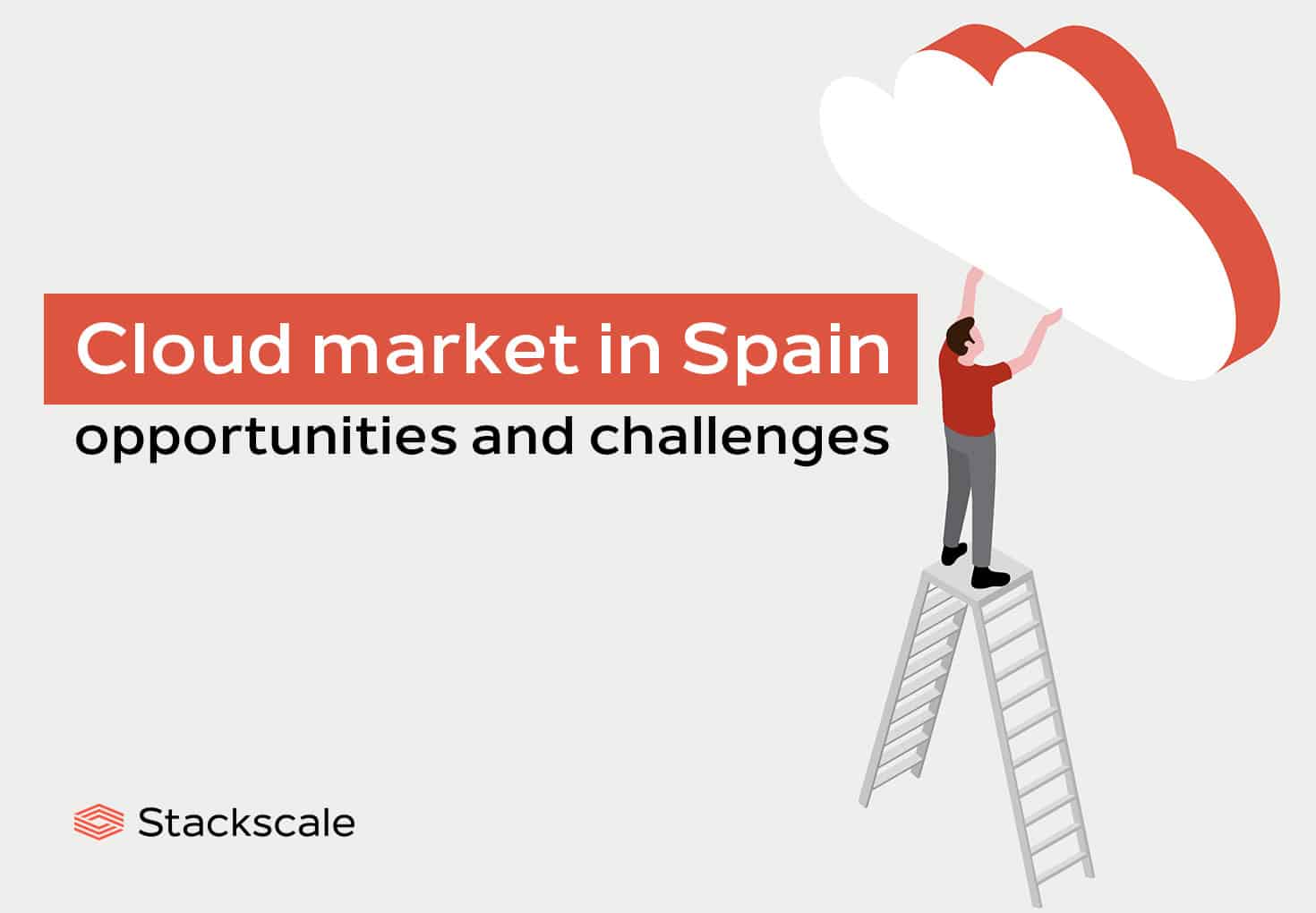The Asociación Española de Startups (Spanish Startups Association)’ report about the cloud market in Spain — carried out by Red2Red and led by Moisés Martín Carretero — analyzes the opportunities and risks of the cloud for innovative entrepreneurship in Spain. Keep reading to discover the key points of the report.
Cloud computing within the digital ecosystem
The cloud market is constantly growing and is vital for digitalization. According to the report, the cloud market in Spain generated more than 2,800 million euros of revenue in 2020, and it is expected to continue to grow significantly. Nevertheless, Spain is still below the EU average in cloud adoption among enterprises.
The cloud is a fundamental aspect for the success of many business models nowadays. It does not only make the development of new business models easier, but also enables companies of all sizes and industries to innovate and increase their competitiveness. Therefore, it is important to boost the creation of new cloud service providers and the growth of existing ones. To do so, for instance, it is essential to establish a dynamic digital ecosystem and to encourage a fairer competition model.
Cloud opportunities for Spanish enterprises
These are some of the opportunities the cloud entails for Spanish companies that are addressed in the report about the cloud market in Spain:
- Building a more dynamic entrepreneurship ecosystem.
- Encouraging the development of new entrepreneurial business models based on the benefits of the cloud.
- Boosting the creation of technology-based enterprises that provide cloud services from innovative perspectives such as data storage and management improvement, security or infrastructure efficiency.
As specified in the report, the European Commission recognizes the necessity of boosting the growth of the cloud industry in the European Union to be prepared for an economy which is becoming increasingly digital. Cloud computing plays an important role in the digital strategy of the EU; within which, data sovereignty and protection are a priority.
Moreover, in line with the cloud-related EU regulations, the Spanish government also aims to meet the needs and tackle the challenges of the digital market with diverse measures established in the “Digital Spain 2025” roadmap. Within this agenda, boosting the digitalization of public administrations is especially relevant. This can have a positive impact since, as detailed in the report, the public sector can play a decisive role in the development of a dynamic digital industry. In addition to supporting the development of a more competitive ecosystem of cloud services.
Challenges for the development of cloud services
Anticompetitive behaviors that distort the market are one of the biggest challenges for the development of cloud services. As explained in the report, certain anticompetitive practices performed by integrated cloud providers can have serious consequences both in the cloud infrastructure market and in the overall economy. Because they prevent innovation and the evolution towards a more dynamic cloud ecosystem.
Furthermore, there are other challenges and obstacles that stand in the way of cloud adoption in the market, both within companies and public administrations. For instance:
- Lack of knowledge about cloud technology.
- A mistaken perception of how security and data protection works in a cloud environment.
- Regulatory issues.
- Fear of job loss.
Key figures of the cloud market in Spain
Finally, we have collected some of the key figures of the cloud market in Spain mentioned in the report:
- In 2021, cloud adoption among enterprises in Spain is still 10% below the European Union’s average.
- Improving the adoption of cloud services to the EU’s average could entail an additional GDP growth of up to 1,30% by 2030.
- With 5,455 companies in total as of 2020, the business sector of cloud services in Spain has experienced a 3,5% annual growth between 2008 and 2020.
- Investment in IT services decreased by 22% in 2020, compared to 2019. However, investment in hardware increased by 65%.
- The SaaS sector generated the biggest amount of revenue of the cloud market in Spain in 2020, with about 1,060 million euros.
- The cloud services market in the public sector in Spain is expected to exceed 1,500 million euros in 2030.
Read the complete report on the Nubes initiative website or download the report in PDF.




